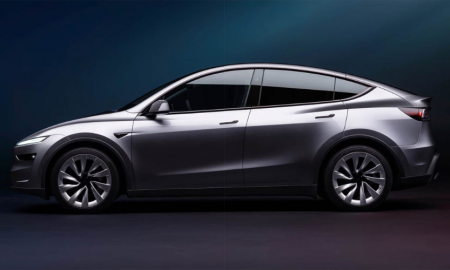
Automatic vs Manual Transmission – Which Should You Choose?

When you’re in the market for a new car, it’s not just about picking the color or the brand. There’s a crucial decision looming over every potential buyer: automatic or manual transmission? It’s a choice that can significantly impact your driving experience, and it’s worth delving into the nitty-gritty details to find the perfect fit for your needs. Let’s dive into the transmission battle – automatic vs manual.
Getting to Know Your Transmission
The transmission is like the brain of your car, housed in a metal case filled with an intricate series of gears. Its mission? To take the power generated by the engine and deliver it to the wheels, orchestrating the perfect balance of power and speed for your journey.
Each gear operates within a specific ratio, ensuring your wheels and engine sync harmoniously. From a standstill, lower gears provide the oomph needed to get moving, while higher gears keep things smooth at higher speeds.
Exploring the Automatic vs Manual Differences
The Manual Transmission Experience

Freepik | Manual transmissions require active participation from the driver.
Manual transmissions, affectionately known as stick shifts, require active participation from the driver. With a manual gearbox, you control the gears using a stick shift, engaging the clutch pedal to disengage the transmission while shifting. It’s a hands-on experience that offers a sense of control and connection with the vehicle. However, mastering the art of manual driving demands practice and coordination between clutch, gas, and gear shifts.
Fast Facts:
- Less than 3% of cars sold in the US feature a manual transmission.
- Manual transmissions are popular in Europe and Asia, accounting for over 80% of vehicles sold.
Pros:
- Lower purchase price compared to automatic transmissions.
- Provides a sense of control and engagement for the driver.
- Fuel-efficient option.
- Preferred by performance drivers for superior acceleration.
- Typically less expensive to service.
Cons:
- Requires a learning curve to master.
- Demands coordination between clutch, gas, and shifting.
- Tends to have a lower resale value.
- Can be challenging to navigate in stop-and-go traffic.
- Less readily available compared to automatic transmissions.
The Convenience of Automatic Transmission

Freepik | Automatic transmissions streamline driving by removing the necessity for manual gear changes.
In contrast, automatic transmissions simplify the driving experience by eliminating the need for manual gear shifts. With just a simple selection of the drive mode, the car handles all gear changes automatically, leaving the driver free from the complexities of manual shifting. Fluid pressure and a planetary gear set work in tandem to facilitate seamless transitions between gears, providing a smooth and effortless driving experience.
Fast Facts:
- Automatic transmissions dominate the US market, with 95% of cars sold featuring this type of transmission.
- Key components include automatic transmission fluid and a planetary gear set.
Pros:
- User-friendly operation with minimal driver input.
- Typically commands a higher resale value.
- Widely available across vehicle models.
- Well-suited for navigating stop-and-go traffic.
- Ideal choice for novice drivers.
Cons:
- Higher initial purchase price compared to manual transmissions.
- May incur higher repair costs.
- Historically, automatic transmissions have been less fuel-efficient, although advancements are narrowing the gap.
Making the Right Choice

Freepik | For city driving in heavy traffic, automatic transmission is ideal.
Consider factors like your budget, driving environment, and the comfort level of other drivers who might use your car. Ultimately, the perfect transmission is the one that makes your driving experience enjoyable, safe, and tailored to your individual needs.
More inDriving
-
`
How to Safely Drive Away from Wildfires – Essential Tips
Wildfires are unpredictable and dangerous, often spreading rapidly with little warning. A video from the Los Angeles wildfires showed abandoned cars...
February 1, 2025 -
`
Can Your Car Keep You Safe During an Emergency?
Natural disasters such as wildfires, hurricanes, and floods can occur unexpectedly, leaving little time to prepare. In such situations, your car...
January 25, 2025 -
`
Tesla Reveals 2025 Model Y Juniper – Here’s What’s New!
Tesla has revealed the 2025 Model Y Juniper, a refreshed version of its best-selling electric SUV. This update enhances design, comfort,...
January 25, 2025 -
`
How to Check Transmission Fluid for Optimal Car Performance
Maintaining your vehicle’s transmission is just as essential as other routine car maintenance tasks like oil changes or tire rotations. Knowing...
January 18, 2025 -
`
Sutton Foster and Hugh Jackman Spark Romance on L.A. Date Night
Hollywood is abuzz with the latest photographs of Hugh Jackman and Sutton Foster, who appear to be confirming their romance during...
January 16, 2025 -
`
How to Fix Car Window Off-Track and Align It Properly
When your car window gets stuck or misaligned, it’s often due to an off-track issue. Learning how to fix car window...
January 10, 2025 -
`
How to Drive a Stick Shift: A Quick Guide for Manual Beginners
Driving a stick shift requires coordinating the clutch, brake, and accelerator to control a car with a manual transmission. Manual cars...
January 3, 2025 -
`
Why Drowsy Driving Is Just as Dangerous as Drunk Driving
Drowsy driving poses a serious risk to road safety, yet many underestimate its dangers compared to drunk driving. The National Sleep...
December 27, 2024 -
`
Where Is Hyundai Made? A Look Inside Global Manufacturing Hubs
Hyundai vehicles dominate roads worldwide, offering reliability and innovation. Yet, only some people know where these cars are actually made. The...
December 20, 2024















You must be logged in to post a comment Login